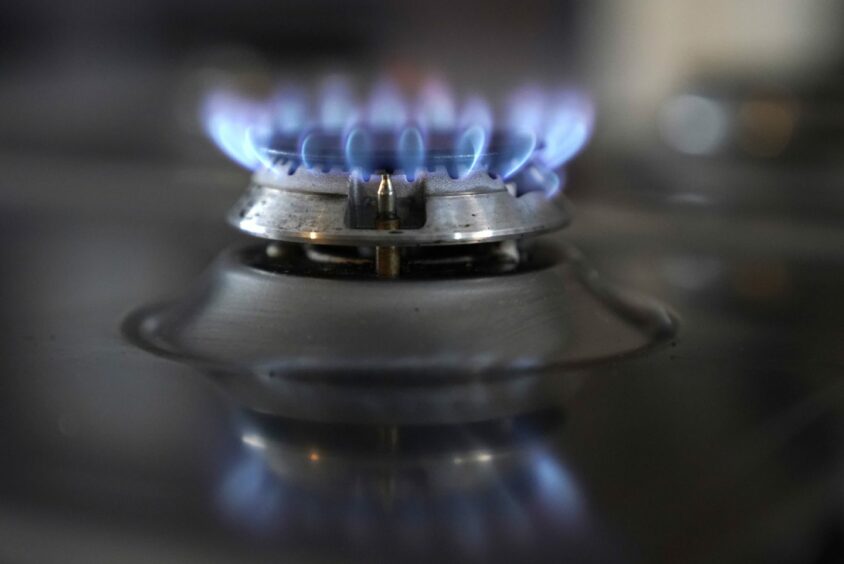
Petrol prices at the pump are set to fall but the price of gas for home heating is likely to stay high, new analysis has revealed.
Economic forecaster Cebr said it expects motor fuel prices will fall along with the price of oil – but the gas price will stay higher “for years rather than months” as Europe struggles to replace supply from Russia.
Last week, the UK average price for petrol was 167.01p for petrol and 179.9p for diesel as families face soaring costs and persistent inflation – particularly in the north and north-east.
The firm said petrol prices could fall by 8p a litre “pretty quickly” but gas prices could take five years to start to decline as European countries such as Germany build specialist terminals to take shipments of liquified natural gas (LNG).
Cebr chief energy adviser Mike McWilliams said, “there is some hope for early relief at the petrol stations” adding: “But the cost of heating your house on gas may well stay up for years rather than months.”
Brent crude much lower by end of the year
The firm said after a week when energy traders have been warning the price of oil will hit $200 a barrel, the forward market for oil is predicting Brent crude below $90 in 2024 against a spot price of $107.60 on 31 March.
The price of oil is a factor in determining wholesale fuel prices, which in turn translate to the price at the pump.
McWilliams said his predictions were for the same level and that the move would start earlier: “Moreover, much of that fall is forecast by December 2022.”
Oil v gas – why markets are different
Cebr said it ran “various scenarios” to get an understanding of relevant dynamics in a world with one of the leading producers, Russia, being sanctioned.
“The oil and gas markets are very different,” said McWilliams.
“Oil is an international market and the commodity is very transportable.
“This means that as long as large purchasers around the world continue to buy, sanctions in the West on purchasing oil from Russia can only have a limited effect because the Russians can sell, if typically at a discount, elsewhere.
“What could and almost certainly will have an effect is that production in many other places can be stepped up over a period of a few months, strategic stockpiles can be released, and high prices can affect demand.
“All of these factors should work to bring the price of oil down by the end of the year.”
He highlighted that although global GDP is less reliant on oil than it was in the early 1970s, he said “there is still a relationship”.
“We expect demand for oil to fall as a result of both the direct impact of higher prices and also the impact of weaker GDP growth,” he said.
Additionally, Cebr expect the US to both increase production and put pressure on OPEC members in the Middle East to do the same.
“We forecast that the US State Department can pressure Middle East producers to increase supply by around 1.5 million barrels per day,” he said.
“The Baker Hughes rig count this week had risen to 670, not far off the pre-pandemic level, suggesting some recovery in US domestic supply as well.
“It’s hard to see the current price of oil being sustained for long given all the factors at play that should bring it down.”
Gas supply crunch
The dynamics of the gas market are very different to that of oil and are more affected by Western sanctions on the Kremlin due to its invasion of Ukraine. Cebr expects European markets reliant on Russian gas to face a supply “crunch”.
McWilliams said: “The gas market is more regional and gas is much more difficult to trade with the need for specialised terminals both to load and to unload, though LNG shipments are likely to increase. European prices tend to be equalised by interconnectors.
“Many parts of Europe, especially Eastern Europe, Austria, Germany and Italy, are very dependent on supply from Russia.
“There is potentially a crunch coming since Russia has announced that it will only accept payments in rubles for gas from 1 April.
“Germany has said it will rather face recession than pay in rubles and has prepared for gas rationing.
“It has also announced that it will build two LNG terminals and Shell has already booked space on the first one, which is being expedited.
“But until terminals are built and operating and demand is reduced, Europe has to chose between facing a recession and continuing to buy Russian gas.
“In all probability there will be a bit of both.”
Lower prices – eventually
Cebr added that it expects prices for both oil and gas will be “noticeably lower than today” – in five years’ time.
It added: “But developments after that will depend much more on the scale of progress to net zero than simply on the impact of sanctions.”
Recommended for you
